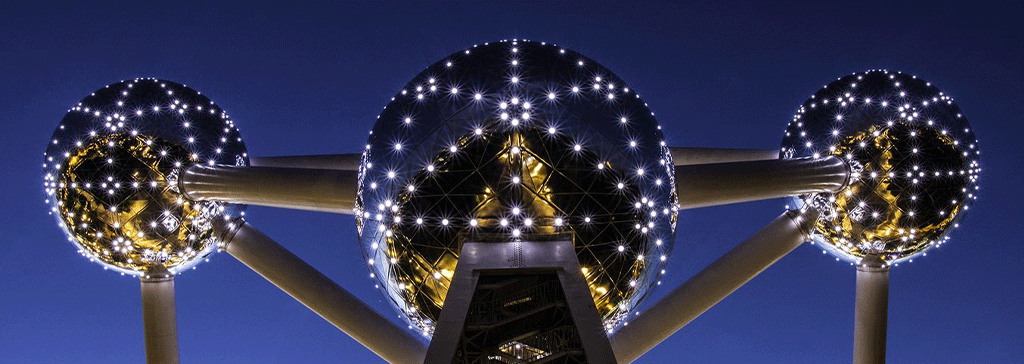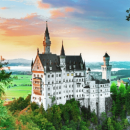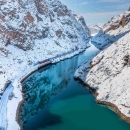

Where The Locals Go In Brussels
Ah, Brussels. The capital of Belgium and… Europe? Well, almost. This amazing city is the capital of the European Union and houses many important EU institutions. Most Europeans closely identify it with the awe-inspiring world of international politics and the EU’s large-scale cooperation.
But this city has so much more to offer than its political significance. Did you know that Brussels is not only known for its fries, waffles, and beer but also comics? Often called the capital of comic books, Brussels is home to statues and street art dedicated to Belgian comics heroes such as The Smurfs and teen detective Tintin.
The capital’s central location in western Europe means that it’s quite possible you’ll pass through it if you’re visiting this side of the continent, whether you’re on your way to Paris or Berlin. “The crossroads of Europe” holds many secrets that most visitors miss, so here are some tips from Brussels locals to make sure you discover the hidden treasures of Brussels.
How to get to Brussels by train: The Belgian capital is incredibly well-connected to other popular cities in the country. You can get to Brussels from Antwerp in 47 minutes, from Bruges in 56 minutes, and from Ghent in 55 minutes. Visit the whole country with a Global Pass or an Interrail Benelux Pass.
Start from the very top!

At first glance, Brussels may seem mostly flat, but as you explore the city, you’ll notice the small hills that distinguish uptown Brussels from the rest of the city. An easy, and comfortable way to reach uptown from downtown is by using the elevator in Breughel L’ancien square (which is usable by bikes too!).
Take the elevator and soak up the beautiful panoramic city views. At the top, you can see many of Brussels’ attractions, including the Atomium, the Palace of Justice, and even the Basilica. Use this viewpoint as a choose-your-own-adventure game and, from here, pick your next destination!
Historical ice skating rink

Brussels’ legendary ice-skating rink Poseidon, open every winter, has been around for more than 50 years. In fact, Belgium’s current king, Philippe I, used to skate here as a little boy. So, if you’re in Brussels from October to April, remember to stop here, like many locals do, and skate the day away.
The atmosphere is decidedly laid-back, and whether you’re an almost-professional ice skater or only a beginner, you will feel welcome here. During Christmas, Poseidon turns into a festive wonderland with seemingly endless hot chocolate, waffles, and holiday lights. To make the experience even better, the roof can be drawn away in minutes if the weather permits. We promise there’s no better feeling than ice skating under a clear, starry sky.
It’s Belgian fries!

Another tip: Don’t mistake ‘frites’ for “French fries” in Brussels. Though the dish’s origins are uncertain, many believe Belgium to be the birthplace of fried potatoes. Belgian frites make for the perfect snack or meal — let’s be honest, nobody can stop at just one — and we highly recommend making a pitstop at Bintje to try them yourself.
Bintje is known for its unpeeled, organic potatoes and homemade sauces, though you can also play it safe and stick to mayonnaise. Enjoy your frites with a local beer and a burger on the side (yes, here it’s the other way around).
Brussels = beer

We can’t mention the fries without also acknowledging the other epicurean delight Belgium is famous for: its exquisite brews and ales. Not sure where to begin? Try Brussels Beer Project, either at the taproom located in hip St-Catherine or the one in Chatelain. The beers at Brussels Beer Project , brewed on the premises, resemble traditional Belgian beers, but come with a modern twist.
As an alternative to this taproom, you can safely skip the touristic beer shops and head straight to the Malting Pot artisanal beer shop, which stocks up to 200 different labels.
Old “impasses”

You might be surprised to learn that big-city Brussels still retains a rustic small-town feel — if you know where to look. Tiny impasses (otherwise known as dead-ends) and narrow, cobblestoned alleys speak to the city’s centuries-old charm. Brussels local Sarah Filion has a soft spot for Rue de la Cigogne in St-Catherine, “Its entrance arch, little houses, old cobblestones, the trees… adorable.”
Also check out the famous impasses leading to L’Imaige Nostre-Dame and Au Bon Vieux Temps, two old-school bars.
Real Syrian food

My Tannour is an authentic Syrian restaurant with custom-built iron and clay ovens, designed to make its dishes taste as mouth-watering as possible. The restaurant’s specialty, lamb, takes up to 16 hours to bake!). A nod to its Syrian roots, the owner of My Tannour, Georges, named the restaurant after the flat, pita-like bread “that is traditionally baked in front of diners before meals." Visit My Tannour for a taste of Brussels’ multicultural culinary offerings.
Brusselite sense of humor

You’re probably aware of Manneken Pis, the world-famous bronze statue of a little boy urinating in a fountain’s basin in Brussels’ city centre. This statue has become a global sensation, with many other countries installing similar creations of their own.
But did you know that Brussels is also home to a bronze statue of a urinating girl? Inaugurated in 1987, the Jeanneke Pis statue represents an artist’s push for gender equality in Brussels. If you pay close attention, you may also find Brussels’ homage to humankind’s best friend, a statue of a peeing dog called Zinneke. In addition to these statues, there are many other artworks around the city that showcase the humour and spirit of Brussels.
Books in 20 languages!

As the EU’s de facto capital, Brussels is home to thousands of people from all over the continent who work in administration and EU institutions. On the street, you may overhear conversations in dozens of languages, and can experience the city’s exciting, global energy through the written word at the multilingual, international bookshop Librebook. With second-hand furniture (sourced from banks), a selection of European wines and live events, this cozy cultural hub truly emulates the Brussels state of mind.
For more local favorites across Europe, check out Spotted by Locals.
Edited by Sukriti Kapoor, Content Writer, Eurail.
Header image by David Bruyndonckx on Unsplash
You might like this as well:
-
![belgium-ghent-buildings-city-centre]() Where The Locals Go In Ghent Follow our local’s guide to Ghent. One of “Europe’s best-kept secrets,” we recommend you make a beeline for this small city the next time you’re on the rails in Belgium.
Where The Locals Go In Ghent Follow our local’s guide to Ghent. One of “Europe’s best-kept secrets,” we recommend you make a beeline for this small city the next time you’re on the rails in Belgium. -
![netherlands-the-hague-scheveningen-beach]() Where The Locals Go In The Hague Want to know the bests things to do in The Hague? Here’s a local’s guide to this overlooked Dutch city that is easily accessible by rail.
Where The Locals Go In The Hague Want to know the bests things to do in The Hague? Here’s a local’s guide to this overlooked Dutch city that is easily accessible by rail.
Change of currency
You cannot change the currency once you have a Pass in your cart. Remove the Pass, and then change the currency on the website header.







